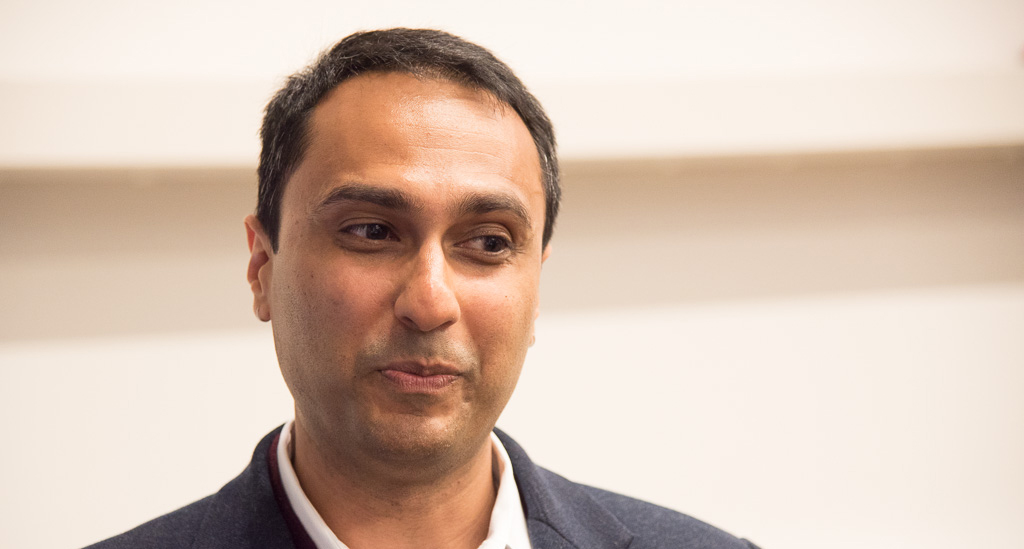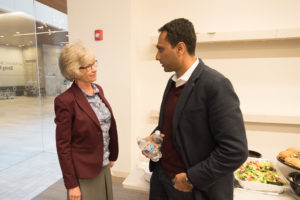Dr. Eboo Patel shared his “best idea in 15 years” in the April 27 keynote address to 80 religious journalists gathered in Chicago for the annual convention of the Associated Church Press.
Referring to the conference theme, “Bridges to Understanding,” Patel declared, “Bridges do not fall from the sky or rise from the ground. People build them.”

A devout Muslim and leading voice in the movement for interfaith cooperation, Patel is founder and president of Interfaith Youth Core (IFYC), a national nonprofit working to make interfaith cooperation a social norm.
Building bridges of understanding among various faith traditions requires leaders with vision, knowledge, and skill, Patel said. He shared an experience that opened his eyes to the need for nuturing this kind of leadership.
He was invited to visit the Greater Chicago Food Depository—“a warehouse piled with canned goods and fresh produce”—where groups of volunteers from various religious traditions regularly work to feed the hungry.
The Depository’s CEO told Patel that at least two-thirds of the volunteers were associated with faith communities. The groups would come and work alongside each other but rarely engaged each other in conversation or attempted to work cooperatively.
It was like people riding in an elevator and not interacting, Patel said. “All of these faith groups have prioritized the activity of volunteering to serve others. They are wrapping their service in worship and spiritual reflection.”
“Why aren’t they coming together?” the CEO asked him. “How do we take advantage of this opportunity?”
“Over the course of a half-century, we have become perhaps the most religiously diverse country in human history,” Patel said. “But diversity does not necessarily mean interaction.”
Leadership is the key to ensuring that diversity leads to cooperation rather than conflict, he said. Patel said effective leadership in interfaith efforts requires a vision of pluralism based on:
- Respect for diverse ideas that grants others the right to their identity, whether or not you agree with them
- Relationships with other faith communities
- Commitment to the common good
Interfaith leadership also requires “an appreciative knowledge of other traditions,” Patel said. This means being willing to learn from and respect the beliefs and values of other traditions.
Leaders must also be guided by “a theology of interfaith cooperation” from their own traditions. Christians should ask themselves, “What is it in my tradition that would inspire—maybe even require—one to engage in interfaith cooperation?” said Patel.

He mentioned as an example the parable of the good Samaritan, which he described as “a story about the faithfulness of ‘the other.’” The story can be seen as encouraging people of different faiths to “come to know one another through acts of goodness.”
Finally, said Patel, interfaith leaders need practical skills, such as the ability to talk to people of different backgrounds and to facilitate conversation within diverse groups.
Patel said his dream is that children would learn that being a Christian, Muslim, or anything else means “being an interfaith leader—not in spite of one’s religion but because of it.”
In response to a question about how to respond to lies about other religions being spread on social media, he said: “Tell a better story. Build a bridge that people want to cross.”
Patel is the author of Acts of Faith, Sacred Ground and Interfaith Leadership: A Primer. Named by U.S. News & World Report as one of America’s Best Leaders of 2009, he served on President Obama’s Inaugural Faith Council.